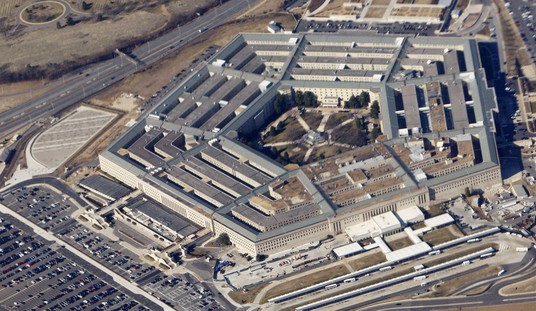As news broke Wednesday morning that President Donald Trump had officially decided to withdraw from Syria, mainstream conservatives had already been offering their thoughts on exactly why withdrawal was such a terrible idea, many of them arguing the decision would mimic the Obama approach to the region: “one foot in, one foot out.”
Streiff wrote about the decision here at RedState this morning, and rightly pointed out the real issue at hand as regards why we’re there in the first place, and it has less to do with ISIS and more to do with the ambitions of Iran:
ISIS is an excuse for us to be in Syria, not a reason. Iran is the reason.
This assertion, it seems to me, actually makes the case that withdrawal is precisely the right move if, as the White House mentioned today in their statement announcing the decision, we are in Syria to address ISIS.
The military mission to eradicate ISIS in Syria is coming to a rapid end, with ISIS being almost completely destroyed. The United States and our partners remain committed to eliminating the small ISIS presence in Syria that our forces have not already eradicated.
But on the topic of Iran, and the U.S. presence in Syria playing something of a foil to their acquisition of power in the region, there are legitimate concerns that U.S. withdrawal opens up the possibility of a vacuum that Russian President Vladimir Putin would be more than happy to fill.
He’s been laying the groundwork for a while, argues Erielle Davidson in The Washington Examiner:
[W]ith Putin continuing to insert himself as a key player within the post-Syrian War negotiations, Trump’s recent warnings of U.S. withdrawal from Syria seem particularly advantageous for Putin, allowing Putin to become the chief “power broker” in that area.
While there is virtually no way to know the extent of America’s capacity to establish a long-term plan for peace in the region, in the short-term, there is an opportunity for the United States to hold its ground in Syria with limited troop presence.
It is likely that the UAE and Saudi Arabia would be willing to share the brunt of the military and financial operation, although Trump’s recent announcement suggests he seems less inclined to this targeted option.
If Trump will forfeit our influence in the region to Russia and its Iranian partner, we, as well as our allies, must come terms with the disastrous consequences of that decision. As enticing as the thought of putting Syria behind us sounds, sometimes simply walking away carries tremendous costs; a Russia-backed Iranian hegemony, ranging all the way to the Mediterranean, will enable Iran and its bloodthirsty IRGC to hold the region hostage. Russian air power will, in short order, allow Iran’s weapons to encircle our allies and hold a knife to our throats, leaving us with no options.
Trump’s national security leaders no doubt have this same possible scenario in mind as they publicly make statements that leaving Syria would be less than ideal; but they, too, are framing the issue in terms of what might happen with ISIS.
While Davidson certainly makes the strong assertion that Putin could leverage the diminishing presence of the U.S. in Syria to fashion himself a power broker in the region, she also mentions another option available to the U.S. to help tamp down Russian ambitions in the region: getting rid of Obama’s Iran nuclear deal.
As it stands now, the Iran Deal does little more than enable Iran to build nuclear weapons—now with the cover of an international consensus that’s more interested in making money with Tehran than in checking its regional and global ambitions. Backing out of the nuclear deal would allow for the U.S. to put renewed, serious nuclear sanctions in place against Iran, thus complicating Iran’s attempts at regional dominance by arresting the cash flow that makes its violent adventurism possible.
The situation in Syria and the greater Middle East offers the United States few options, but there are steps the Trump administration can take in order to lessen the influence of the Russian-Iranian alliance, namely maintaining a foothold in Damascus and working to fracture the friendship between Moscow and Tehran. It starts with Trump not exiting Syria.
If Trump does decide to do away with the Iran deal, it will be interesting to see how that may affect the power relationships in the region, and if that creates the conditions for a regrowth of ISIS in the absence of American troops there to stop it.













Join the conversation as a VIP Member